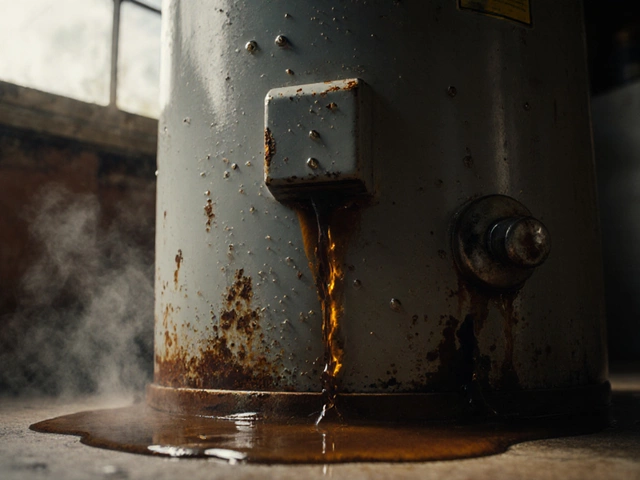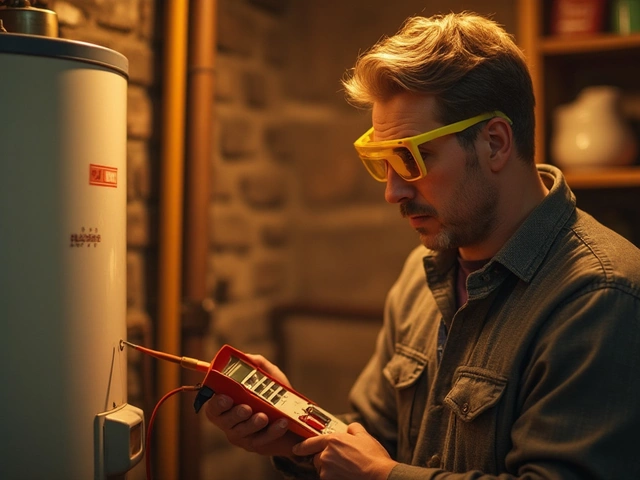Feeling frustrated because your cooker keeps acting up? Before you throw money at a brand‑new unit, see if a repair can save you cash. In many cases a faulty part is the culprit, and swapping it out costs a fraction of a full replacement. But if the cooker is old, inefficient, or needs repeated fixes, a new model might be the smarter choice.
Typical repairs range from £70 for a simple thermostat swap to £200‑£300 for a major heating element fix. Prices climb if you need a qualified engineer to visit after hours or if hard‑to‑reach parts must be ordered. Compare the quote with the price of a new cooker (often £500‑£1,200). If the repair is more than half the cost of a new unit, it’s worth thinking about replacement.
If you have basic electrical knowledge and the right tools, you can replace common parts yourself. First, turn off the power at the fuse box and unplug the cooker. Remove the back panel, locate the faulty component (burner, oven element, thermostat), and swap it with a brand‑new part that matches the model number. Re‑assemble, restore power, and test the cooker.
When you’re not comfortable with electricity, call a certified appliance technician. They’ll handle the wiring safely and ensure the new part works with your cooker’s existing systems. Professional service also protects any warranty you might have.
Choosing a new cooker? Look for energy‑efficient models – they use less gas or electricity and can lower your bills. Measure the space in your kitchen, count the burners you need, and think about extra features like self‑cleaning or convection ovens. Modern cookers often come with built‑in safety switches, which can prevent future breakdowns.
Before you buy, read a few reviews on reliability and after‑sales support. Some brands have better parts availability, which makes future repairs easier if you ever need them. Also, ask the retailer about delivery and installation fees – these can add £50‑£100 to the total price.
If you decide to replace, the installation is usually quick. A professional will disconnect the old unit, hook up the new cooker, and test all functions. Make sure the installer checks that the gas line or electrical socket matches the cooker’s specifications – mismatched connections are a safety hazard.
Finally, keep the old cooker’s manual and any warranty paperwork. Even if you throw it away, the paperwork can be handy for recycling programs or for proof of purchase if you need a refund. And don’t forget to properly dispose of the old appliance; many local councils offer free bulk‑skip services.
Whether you repair or replace, the goal is a reliable cooker that lets you whip up meals without hassle. We hope this guide helps you weigh the costs, understand the steps, and make a confident decision for your kitchen.

Wondering when to replace your cooker? This article breaks down the real signs that your cooker is on its last legs, what affects its lifespan, and how to keep it running safely for longer. Get practical tips straight from real-life experience and find out how to spot issues before they turn expensive. Whether you use gas or electric, knowing when to repair or replace makes all the difference in your kitchen.

Exploring the value of repairing a freezer involves assessing various factors, such as the cost of repairs, the appliance's age, and the efficiency improvements of newer models. Understanding common freezer problems can help homeowners decide whether a repair is worthwhile. The decision should account for both economic and environmental perspectives, guiding when to repair or replace.

Most water heaters fail due to tank corrosion, heating element burnout, or sediment buildup. Learn the top failure points and how to spot them early to avoid costly repairs or floods.

Deciding whether to fix or replace your oven in 2025? Learn real repair costs, when replacement saves money, safety risks of old ovens, and how to make the smart choice without overpaying.

Diagnosing a faulty hot water heater element can seem daunting, but it's an essential skill for any homeowner. Key indicators like water temperature issues, noises, and prolonged heating cycles are telltale signs of a bad element. This article provides practical advice on how to inspect and test your heater element using accessible tools. Also included are safety tips and maintenance recommendations to extend the lifespan of your water heater.

If your boiler stops working, know who to call and what to do immediately. This guide covers emergency steps, how to find a Gas Safe engineer, repair costs, and how to prevent future breakdowns in the UK.